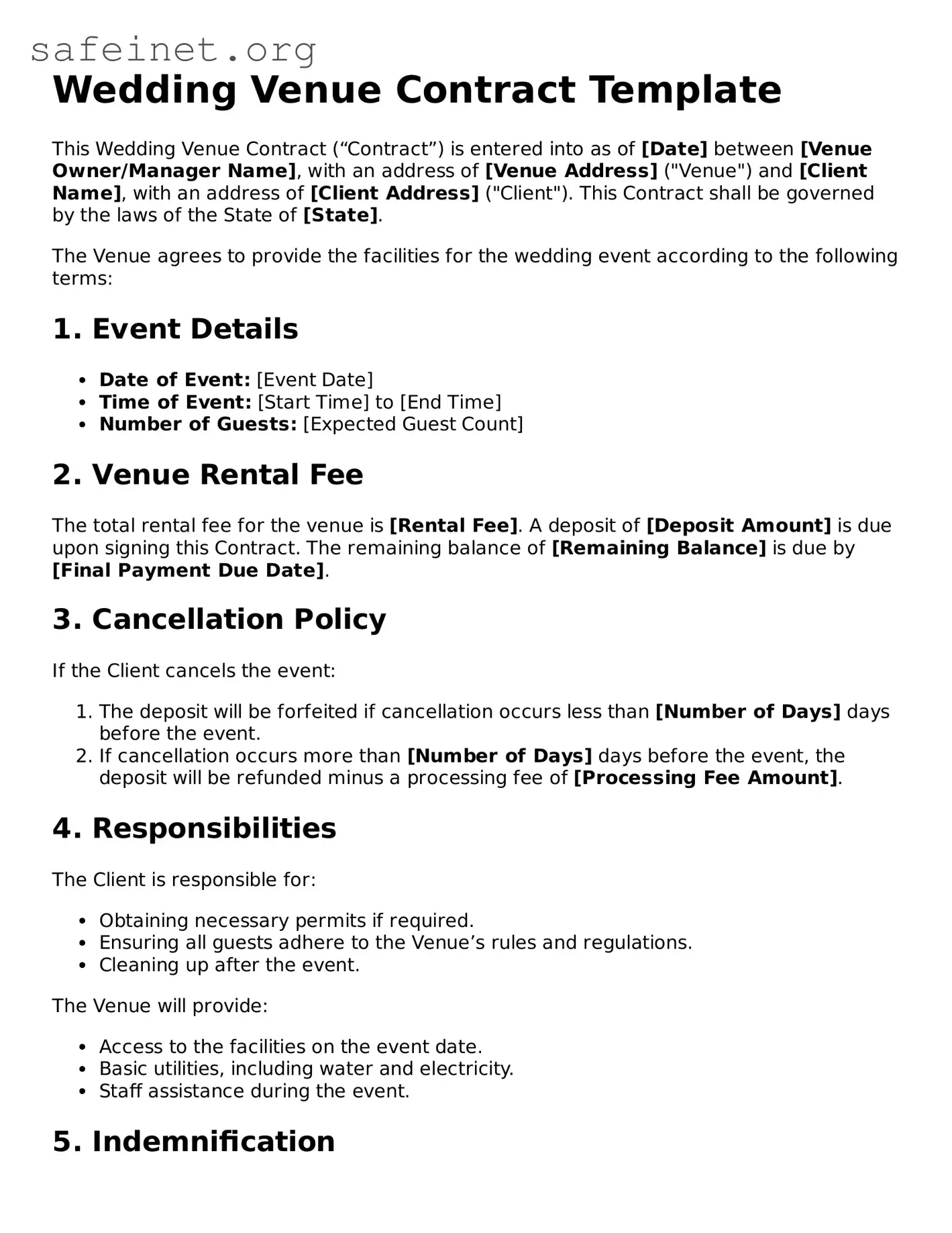What is a Wedding Venue Contract?
A Wedding Venue Contract is a legally binding agreement between the couple and the venue management. It outlines the terms and conditions under which the venue will host the wedding, including details such as the date, time, and capacity of the event.
What information do I need to provide when filling out the contract?
You will need to provide personal information such as names, contact details, and the wedding date. Additionally, the expected number of guests and any special requests should be included to ensure a tailored experience.
Can I negotiate terms within the contract?
Yes, many venues are open to discussion. It’s common to negotiate aspects such as payment schedules, cancellation policies, and services included. Open communication can lead to a mutually beneficial agreement.
What happens if I need to cancel my wedding?
Cancellation policies are usually outlined in the contract. Depending on the terms, cancellation may result in a loss of deposit or additional fees. It is advisable to review these terms carefully and discuss any concerns with the venue manager.
Is a deposit required to secure the venue?
Most venues do require a deposit to hold the date. This amount varies by location and can range from a percentage of the total cost to a fixed fee. The contract will specify the deposit amount and the due date.
What are the payment terms once the deposit is made?
Payment terms include the total cost of the venue, payment schedule, and accepted payment methods. These terms are detailed in the contract, ensuring that both parties understand when payments are due.
Are there any restrictions on decorations or layout at the venue?
Many venues have specific guidelines regarding decorations or structural changes. The contract will typically outline these restrictions to ensure safety and compliance with venue policies.
What services are typically included in the contract?
Included services may range from tables and chairs to staff assistance. Depending on the venue, additional options such as catering or audiovisual equipment may be available, sometimes at an extra cost.
Can I make changes to the contract after it has been signed?
Changes to the contract should be communicated to the venue management as soon as possible. Some alterations may be accommodated, but it is essential to have any modifications documented in writing.
What should I do if I have questions after signing the contract?
It is advisable to reach out to the venue manager directly for any questions or concerns. Open lines of communication can help address issues promptly and ensure a smooth planning process.
